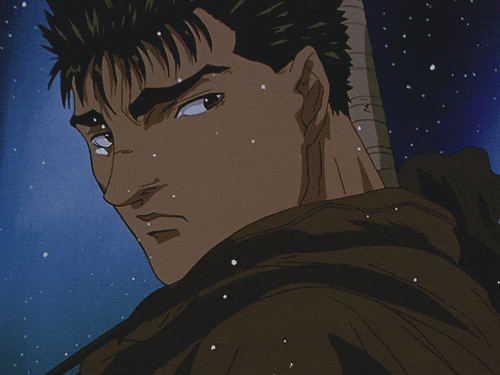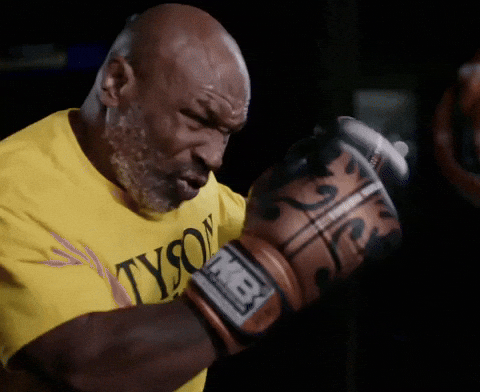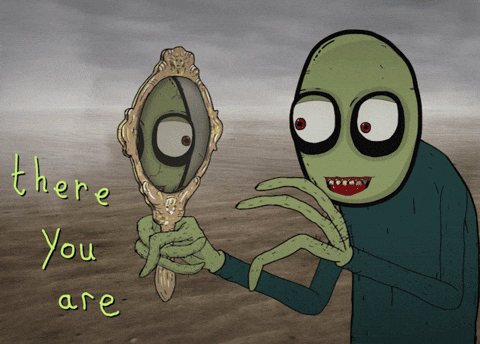Beyond the Self-Help Shelf: Wisdom in Unexpected Places
When we think about books that teach resilience, our minds typically drift toward familiar territory: self-help literature with its clinical studies, motivational quotes, and step-by-step guides to building mental toughness. Yet sometimes, the most profound lessons about human endurance come from the most unexpected sources.
The greatest novel ever written about resilience might not be found in the psychology section of your bookstore. Instead, it exists as a Japanese manga created by Kentaro Miura in 1988, known simply as “Berserk.”
This isn’t just another recommendation to broaden your reading horizons. Berserk contains more authentic wisdom about perseverance and human resilience than entire libraries of conventional self-help books. While other works tell you how to be resilient, Berserk shows you what resilience actually looks like when stripped of all pretense and pushed to its absolute limits.
Breaking Down the Barriers: Comics as Literature
There’s an unfortunate prejudice against comics and manga as serious literature. Many dismiss these mediums as childish entertainment, missing the profound philosophical and psychological depths that the best examples contain. This dismissive attitude prevents people from accessing some of the most powerful storytelling and life lessons available in contemporary literature.
Berserk stands as a testament to the potential of visual storytelling to explore the deepest aspects of human experience. Through its nearly 400 chapters, Miura created not just entertainment, but a meditation on suffering, perseverance, and the indomitable nature of the human spirit. The visual medium allows for an immediacy and emotional impact that traditional prose sometimes struggles to achieve.
Meet Guts: The Embodiment of Endurance
The protagonist of Berserk, known simply as Guts, represents perhaps the most compelling example of resilience in all of literature. His story is not one of triumph over adversity, but of endurance despite seemingly endless suffering. To understand the magnitude of his resilience, we must first comprehend the scope of his challenges.
Imagine being subjected to physical and emotional trauma equivalent to “getting punched in the gut by Prime Mike Tyson every single day for the rest of your life” while simultaneously being cursed with insomnia and constant physical ailment. This hyperbolic comparison barely scratches the surface of what Guts endures throughout his journey. His suffering is so comprehensive, so relentless, that it becomes almost mythological in scope.
Yet this isn’t suffering for suffering’s sake. Miura uses Guts’ extreme circumstances to explore what happens when a human being is pushed beyond all reasonable limits—and chooses to keep going anyway.
The Sisyphean Choice: Rolling the Boulder by Will
The most powerful metaphor for Guts’ existence comes from the image of rolling a boulder up a mountain, only to be crushed by that same boulder at the end of each day. This clearly echoes the myth of Sisyphus, the king condemned by the gods to push a boulder up a mountain for eternity, only to watch it roll back down each time he neared the summit.
But here’s where Guts transcends even Sisyphus: he chooses his boulder. While Sisyphus was condemned by divine punishment, Guts continues his struggle by choice. Every morning, despite knowing the likely outcome, despite the crushing weight of previous failures, he picks up his metaphorical boulder and begins climbing again.
This daily choice to continue represents the essence of true resilience. It’s not about being unbreakable—Guts breaks constantly. It’s not about being optimistic—Guts has every reason for despair. It’s about showing up, regardless of the odds, regardless of the pain, because showing up is the only option that leads anywhere.
The Brutal Truth: Progress Isn’t Linear
One of the most honest aspects of Guts’ journey is how it reflects the reality of pursuing difficult goals. Progress is not linear, and success is not guaranteed. For every step forward, there often seem to be two steps back. This pattern can be devastating to anyone pursuing challenging dreams or working through significant obstacles.
Traditional motivational literature often glosses over this reality, presenting resilience as a steady upward climb. Berserk, by contrast, shows us that true resilience means continuing to move forward even when progress seems impossible to measure. Some days, simply surviving is victory enough. Some days, not giving up is the greatest achievement possible.
This realistic portrayal of struggle makes Guts’ resilience all the more inspiring. He doesn’t succeed because he’s special or chosen—he endures because he refuses to stop trying.
The Question That Defines Everything
Throughout his 378-chapter journey, Guts faces a fundamental question that every person pursuing difficult goals must eventually confront: "What's the point of all this? Why am I even showing up?" This existential crisis is perhaps more dangerous than any physical enemy he faces.
The temptation to quit, to “throw in the towel,” becomes overwhelming when progress seems nonexistent and suffering appears endless. This is the moment that separates those who achieve their dreams from those who abandon them. It’s not talent, luck, or circumstances that make the difference—it’s the decision to continue when continuation seems pointless.
Guts provides the answer not through words but through actions: you show up because showing up is what defines you. You continue because your dreams were never meant to be easy—if they were easy, everyone would achieve them.
The Selectivity of Dreams Worth Pursuing
This brings us to a crucial insight that Berserk illustrates perfectly: truly meaningful dreams are reserved for a select few, and that selectivity is determined not by privilege or talent, but by willingness to endure. The dreams worth pursuing are, by definition, difficult enough to eliminate most people through the simple process of attrition.
This isn’t meant to be discouraging—it’s meant to be empowering. If you’re still standing, still fighting, still showing up despite repeated setbacks, you’re already demonstrating that you belong to that select group. Your willingness to continue when others would quit is proof of your worthiness to achieve what others cannot.
Glory Redefined: The Journey Is the Destination
Perhaps the most profound lesson from Guts’ story is the realization that the goal was never really about reaching the mountaintop. The glory isn’t in the destination—it’s in the transformation that occurs through the journey of trying to reach it.
Every day that Guts chooses to continue, he becomes a stronger version of himself. Not necessarily physically (though that too), but mentally, emotionally, and spiritually. The person who can endure what seems unendurable is fundamentally different from the person who gives up when things get difficult.
This transformation is the real victory. It’s about becoming the version of yourself that would make your younger self proud—the version that never said surrender, never gave in, never stopped believing in the possibility of something better.
The Mirror Test: Making Your Younger Self Proud
The ultimate test of resilience isn’t whether you achieve your specific goals—it’s whether you can look in the mirror and respect the person looking back at you. Can you honestly say to your ten-year-old self that you didn’t give up on the dreams that mattered most?
This isn’t about perfection or constant success. It’s about persistence, about maintaining the “burning spirit to conquer any and all challenges that life decides to throw your way.” It’s about proving to yourself that you’re the kind of person who doesn’t quit when things get difficult.
The Enduring Spirit: Character Beyond Circumstances
What makes Berserk such a powerful teacher of resilience is that it strips away all the comfortable illusions about success and failure. It shows us that resilience isn’t about avoiding suffering or guaranteeing positive outcomes—it’s about enduring regardless of circumstances.
Guts doesn’t keep going because he knows he’ll win. He keeps going because that’s who he is. His identity is defined not by his victories but by his refusal to surrender. This is the kind of resilience that can’t be broken by external circumstances because it comes from an internal decision about who you choose to be.
The Choice to Endure
In a world full of quick fixes and instant gratification, Berserk offers a different model of human strength. It suggests that the highest form of courage isn’t the absence of fear or doubt, but the decision to continue despite both. It’s about rolling that boulder up the mountain not because you’re sure you’ll succeed, but because the act of rolling it transforms you into someone capable of success.
The next time you face overwhelming odds, crushing setbacks, or the temptation to give up on something that matters to you, remember Guts. Remember that showing up when everything seems hopeless is not just an act of resilience—it’s an act of self-creation. You’re not just pursuing your dreams; you’re forging the character that will be worthy of achieving them.
Be resilient. Be like Guts. Because at the end of the day, it was never really about the glory—it was about becoming someone who never surrenders.


